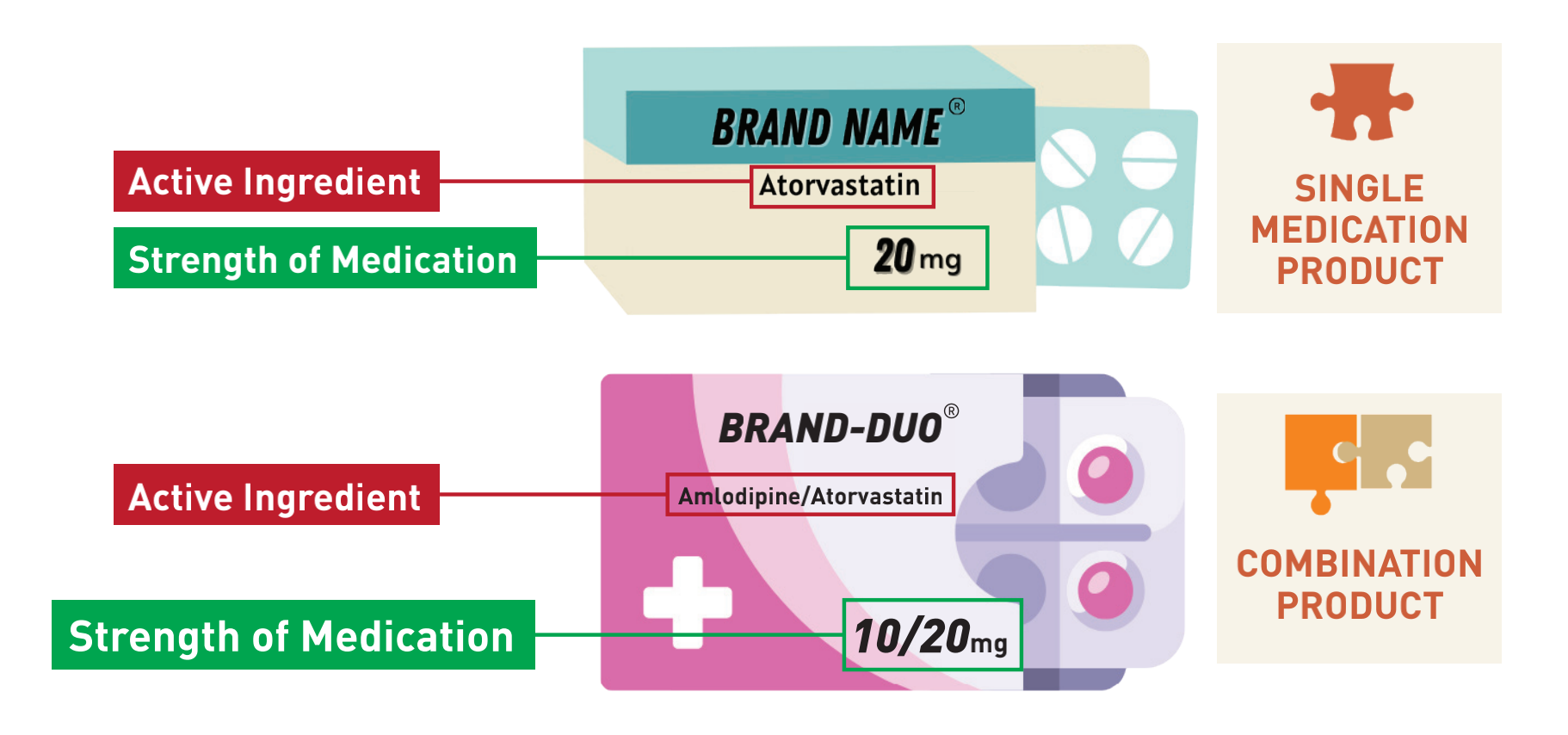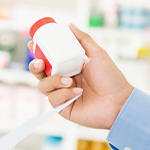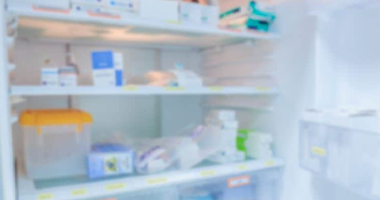General Medicine Use & Proper Storage of Medicines
Generic Name VS Brand Name
DO YOU KNOW YOUR MEDICATION NAMES?
Understanding how to read medication names is an important part of medication administration. It will also help you identify and recognize essential information of the medications you or your family takes.
Generic Name
Brand Name
Generic name is given by the drug company that first develops the medication.
- All medications have only one generic name.
Brand name is also known as trade or proprietary name which is named by the drug company.
- It is important to remember that different drug companies may market a medication under different trade names.
- The trade name is followed by an ®, which is the registration symbol.

What is an active ingredient of a medication?
Active ingredient is chemical compound of the medicine that allows it to have pharmacological effect in the body to prevent or treat a condition or disease. Some examples include paracetamol and ibuprofen.
Importance of identifying the active ingredient

Able to recognize when two different brands have the same active ingredient

Able to identify any ingredients that may cause an allergic reaction

Able to source for alternative medicines when travel overseas

Avoid accidental overdose
Is there products that contain more than one active ingredient?
Combination medication products contain two or more drugs combined into a single dosage form. The medication label will indicate that it contains two or more active ingredients that comes in a fixed-dose combination. This is one way to reduce pill burden and improve medication adherence in patients who require to be on multiple medications.

Tips to Read a Medication Label
Always check your medication packaging label to identify the correct active ingredients and correct strength of medications to ensure you get what you need as prescribed by your doctor.
True Friends Do Not Advocate Sharing of Prescription Medicines with Each Other. WHY?
Sharing of medications is NOT caring
Any medicines will have side effects, but these are known risks and are managed by a health care professional. Thus, the benefits outweigh the risks when the medicine is taken as directed.

It is also important to always seek the advice of a paediatrician before giving medicines to a child. Doses prescribed for adults are not the same for children. Furthermore, certain medications should NOT be given to children because they may harm the child’s development.
Remember that medicines prescribed by your doctor are a choice tailor made for you and your needs. Keep yourself and your family safe by not sharing your medicines.
References:
Sharing prescription medicines can be bad for health. By Christopher Campbell,Pharm.D, PGY1 Resident, George Regents Medical Center, Augusta; and Christina E. DeRemer Pharm.D., BCPS, Primary Care Clinical Pharmacist & Medicine Team Supervisor, Georgia Regents Health System.
Travelling with your medicines
If you are travelling by plane, keep your medicines in your hand-carry luggage. To help with security at the airport:

Keep medicines in the original bottles.

Ask your doctor for a copy of all your prescriptions. You may need this in case you misplace, run out, or damage your medicines.

If you have diabetes, ask your doctor for a letter explaining your medical condition with a list of your medications.
You are allowed to carry your medicines, blood glucose meter, and lancet device on a plane.

Carry your refrigerated medicines with you on the plane in a cooler bag that is sufficient to keep the medication cold for a few hours. Inform a flight attendant about your medication as soon as you board the long haul flight.

The flight attendant will be able to put the medication in the airplane’s refrigerator. Make sure your container is labeled with your name and contact information.
References:
Centers for Disease Control and Prevention. Put Your Medicines Up and Away and Out of Sight. December 12, 2011. www.cdc.gov/Features/MedicationStorage. Accessed on 10 August, 2016.
The Center for Improving Medication Management and the National Council on Patient Information and Education. The quick scoop: medicines and your family: safely storing and disposing of medicines. Updated 2016. www.learnaboutrxsafety.org/quick-scoop.aspx#safely. Accessed 10 August, 2016.
Keep Medicines Away from Heat and Light
- Proper storage of medicines is crucial to ensure their effectiveness and potency.
- Avoid keeping your medicines in your car.
- Proper storage areas for example, include your bedroom inside a dresser drawer or in a kitchen cabinet (but keep out of reach of children).
- Make sure the cabinet in the kitchen is not above a stove or a sink, where heat and steam could create moisture problems that will damage the medicines.
References:
TIPS FOR PROPER STORAGE OF MEDICATIONS Ontario Pharmacists Association
Mistakes in Storage May Alter Medication, By WALECIA KONRADAUG. 15, 2011, http://www.nytimes.com/2011/08/16/health/16consumer.html?_r=0
Do Medicines Need to be Kept in the Refrigerator?
Not all medicines need to be kept in a refrigerator as they may be adversely affected by the fluctuating temperatures of a domestic refrigerator. Check with your pharmacist for the precise temperature range for your medicines.
Only medicines that carry the instruction “REFRIGERATE” should be stored in the refrigerator, preferably in the centre compartment, and to avoid the door or the cooling vent at the back of the refrigerator.

References:
TIPS FOR PROPER STORAGE OF MEDICATIONS Ontario Pharmacists Association
Mistakes in Storage May Alter Medication, By WALECIA KONRADAUG. 15, 2011, http://www.nytimes.com/2011/08/16/health/16consumer.html?_r=0
How Stable Are Medicines Upon Removal from its Original Packaging?
Certain medicines are not recommended to be removed from its original packaging and stored in a compliance aid. These include:
Store your medicines in their original containers to preserve their effects as far as possible.
If you are required to take half a tablet of your medicine, avoid cutting your pills in advance and storing them in a medication container for later use. This may affect the quality and efficacy of the medication.
Keep Me In My Pack
Certain medication when removed from the blister pack or bottle is unstable after a certain period of time.
Here's Why
- Your medication may be sensitive to light.
- Your medication may be sensitive to moisture.
- Certain medications are made in a special formulation.
Suggestion:
- Avoid removing medication from original packaging, except for administering.
- Check with your pharmacists on how you should store your medication.
- Cut your medication with the blister on to smaller size for storage.
Reference:
Church, C.; Smith, J. 2006, The Pharmaceutical Journal: “How stable are medicines moved from original packs into compliance aids?”
Can I Crush the Tablet or Open the Capsule?
Types of tablet or capsule that you should NOT crush or open:

Delayed-release or long-acting formulation
Crushing this type of tablet may release the drug all at once. This increases the chance of side effects, the risk of overdosing with the medicines, and potentially a period of time where the drug is not present in your body to exert an effect.

Tablets with a
gastro-resistant coating
These tablets contain gastro-resistant granules that are designed to protect the active ingredient from our stomach acid, and are only released when it reaches the intestines.When this gastro-resistant layer is destroyed by crushing, you may increase your chance of a stomach ulcer, have lesser amount of the drug to exert an effect, or stopping the drug from getting to where it needs to work.

Sensitive to light or moisture
Some active ingredients are sensitive to light or moisture (e.g. frusemide is light sensitive). Crushing a tablet or opening a capsule that contains a light- or moisture sensitive active ingredient exposes it to degradation.

Cytotoxic
This group of medicines is toxic to cells as they stop or prevent cells from replicating. They are used to treat cancers and other conditions such as rheumatoid arthritis and multiple sclerosis.It is important that personnel involved in drug preparation or administration are aware of the nature of the drug so that they can avoid unnecessary handling of the drug or take precautionary steps by wearing gloves to prevent skin contact or face mask for inhalation.






